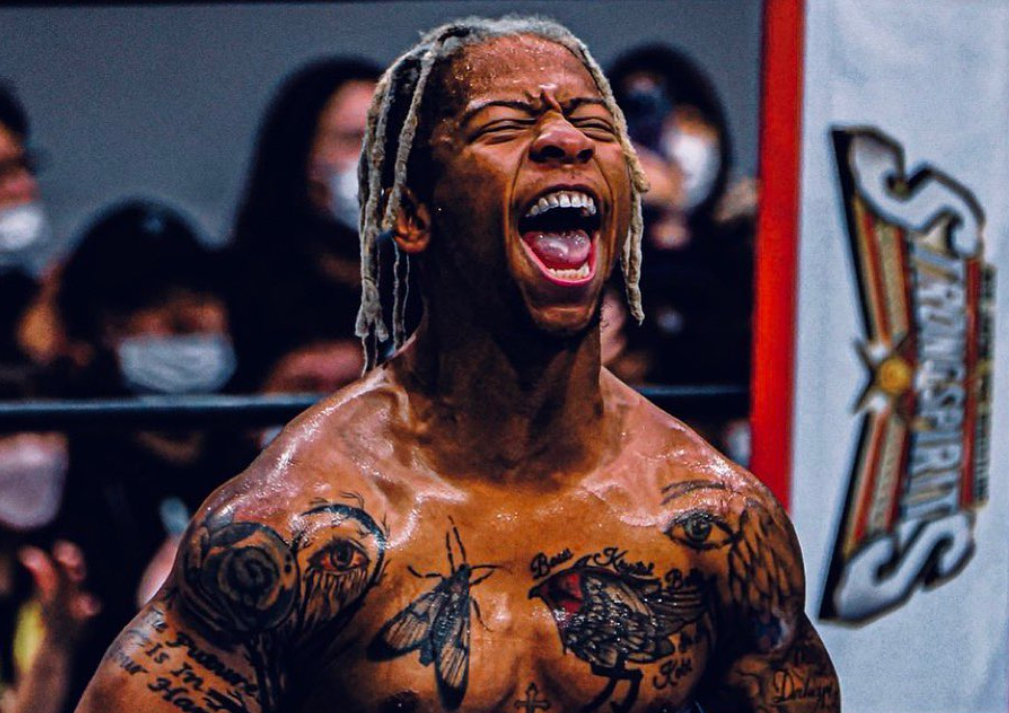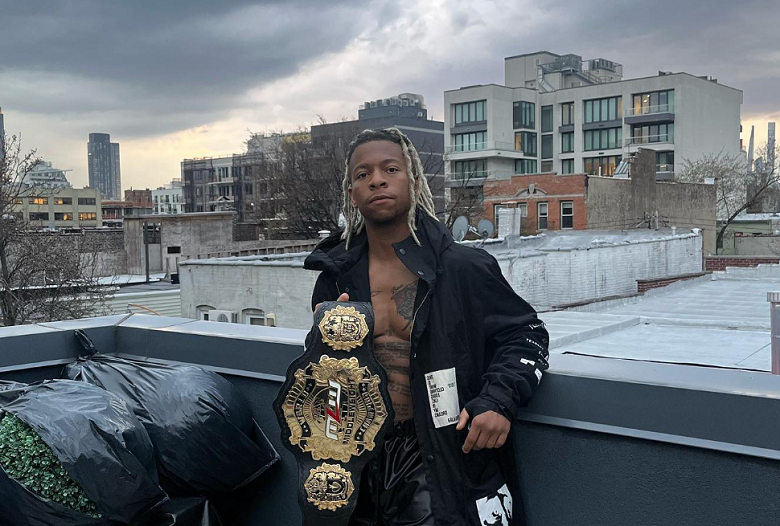
The last time New Japan Pro Wrestling had an event in D.C., Lio Rush was just a few months removed from surgery.
Rush, who grew up in the D.C. area and attended Bishop McNamara and DuVal high schools in Maryland, was sidelined for almost a year after having shoulder surgery to repair a torn biceps and labrum. He vowed that, if he got the chance to wrestle in front of a hometown crowd again, “that I would come back to D.C. stronger (and) faster than ever before.”
Rush will get that chance this weekend, when he participates in the Capital Collision event Saturday night at the Entertainment & Sports Arena in Congress Heights. The event will also be available via streaming globally on FITE.
“This is a new era for New Japan Pro Wrestling coming out of the COVID era, and rebuilding and expanding, and bringing along all of the good guys and girls with us on this ride,” Rush said.
Rush was still in high school when he heard about a wrestling school in Hagerstown. He toured the facility but didn’t feel prepared to enroll. By the time he returned, he said, the school had closed down.
But after graduating, he joined another professional wrestling training center, and trained there for about seven months.
That was the start of a wrestling career that has taken him overseas.
He had some WWE experience, but after asking fellow wrestler Rocky Romero how to get involved with the league he described as “different from the WWE,” he was able to join in 2020 and move to Japan.
He was particularly intrigued after noticing many of the league’s participants had “mixed martial arts backgrounds, or some kind of legitimate athletic background.” That contrasts with what Rush said is the “sports and entertainment type of wrestling” seen in WWE.
“It was just a perfect fit, perfect timing, the right circumstances,” Rush said. “I was the man for the job. I’m so grateful that I got that opportunity.”
The style and atmosphere of wrestling in Japan are different, Rush said. Fans view it as a sport, and “there’s a different kind of energy out there in the crowd,” he said.

For example, Rush said while fans in the United States may wear casual things like T-shirts to events, in Japan, many people attend in suits or ordinary street clothes.
New Japan Pro Wrestling, which features a mix of wrestlers from the U.S. and Japan, is becoming increasingly popular in the U.S.
“It’s just a different, hard-hitting, strong-spirited style of wrestling that focuses heavy on the culture,” Rush said. “Not just the Japanese wrestling culture, but just the Japanese culture in general.”
Rush said his preparation before matches has remained the same since high school — he’ll eat a big breakfast and then not much else, focusing on drinking a lot of water and stretching leading up to an event. He describes his style as agile, fast and quick-paced.
Leading up to a big match, he said he’ll spend time with his family and check on his siblings. Some family members still live in the D.C. region, and he hopes to eventually have them visit Japan.
“I’m still getting acclimated to Japan myself,” Rush said. “Once I’m comfortable enough, I want to be the tour guide for everybody who wants to come by and see me.”
Before the match, Rush said he may spend some time outdoors in the woods or on nature trails, “Just to remind myself where I came from, where I’m going and how special that night is going to be.
“This is going to be a big show,” Rush said.








